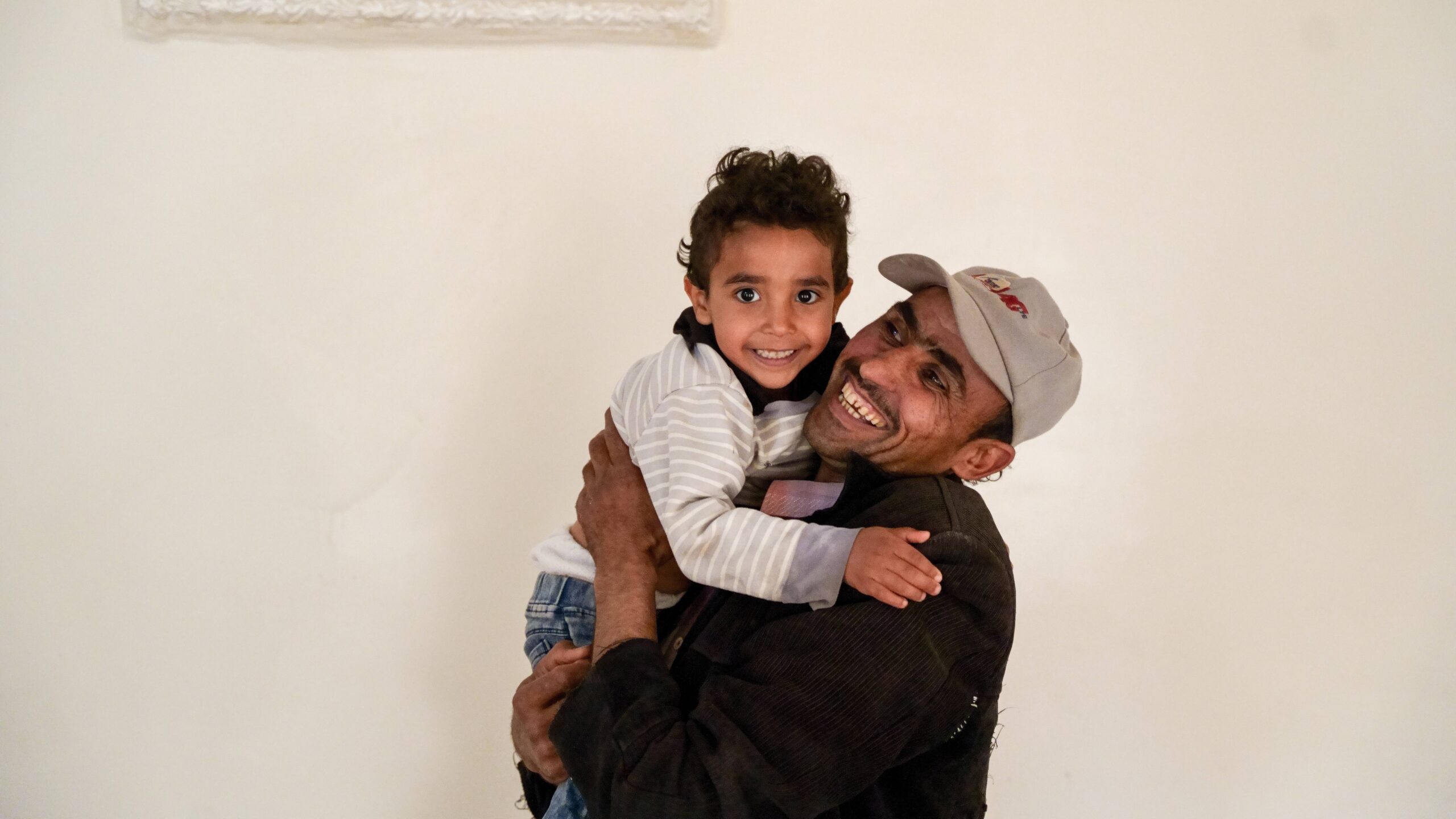Every year 72,000 children under five die from illness linked to dirty water, compared with 3,400 from war-related violence.
“The water tasted strange; it tasted odd … I felt like our boy was done” – Nabil.
Yemen is one of the world’s largest humanitarian crises. Around 9.8 million children are suffering from the effects of years of conflict.
And one of the main threats they face is unsafe water.
Three-year-old Mohammed learned this through painful experience.
His fight for survival began after he, his parents Nabil and Salma and his siblings were displaced by conflict. This imposed on them a perilous existence, living in inadequate housing and without access to reliable income, food supplies or clean water.
The water supplies they were able to collect from local water trucks brought cholera into their home.
Mohammed became seriously ill, with severe vomiting and diarrhoea, and was taken to hospital.
“I felt like our boy was done,” says Nabil.
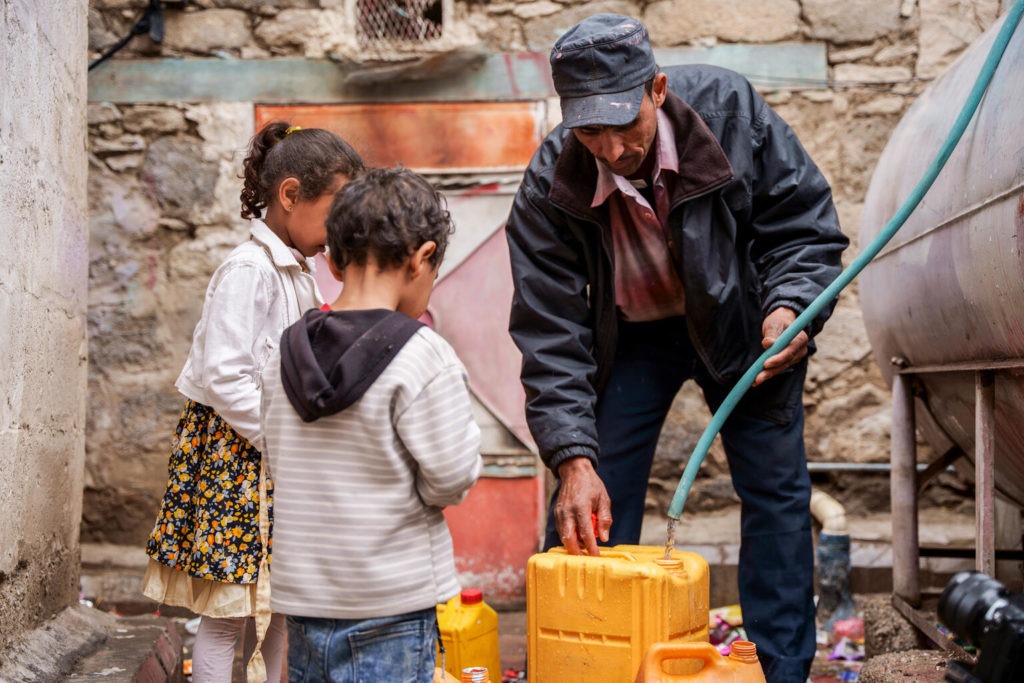
Thanks to his parents quick thinking and medical treatment, Mohammed was able to make a full recovery. And he now not only survives but thrives thanks to UNICEF-supported solar-powered water systems, which secure safe water supplies for 2.5 million people in Yemen.
Costing just under €1.2 million, the biggest of these projects has secured a safe water supply for over 137,000 people in Dhamar, where Nabil and his family live.
“The project has impacted people’s health and improved their lives,” Nabil says.
Sustainable, skilled workforce
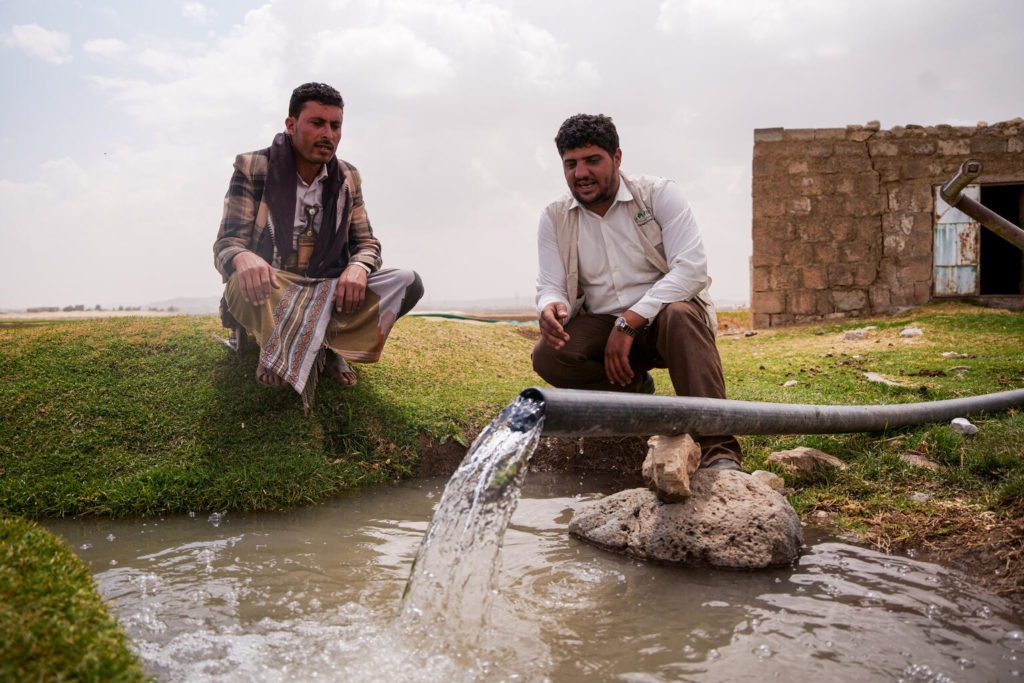
UNICEF’s water projects not only save children’s lives, but provide sustainable, highly-skilled work.
Mohammed Hasan, 24, is one of those to benefit from the projects.
Following in his father’s footsteps to become an engineer, Mohammed sees his work as both a highly technical skill and a humanitarian service. A way to ensure that his expertise is cultivated inside the country and the reliance on outside technical assistance is reduced. Currently, in his hometown, he supervises Dhamar’s huge solar-powered water system and ensures the delivery of clean water to his community.
“The project has greatly assisted in serving the people. It has introduced wells and now provides water for schools, hospitals, and citizens. The citizens previously had to endure long queues for water,” he explains.
Sustaining such a project in any context is complex, even more so in Yemen, a country which remains in the grip of an ongoing conflict.
“The project is neutral and not associated with any conflicts, making it safe from any sabotage or obstruction. The benefits of this system are universal and extend to the entire population,” he details. Adding that “it is not owned by a specific person or group, but rather is a public service that benefits everyone.”
Hope for the future through education
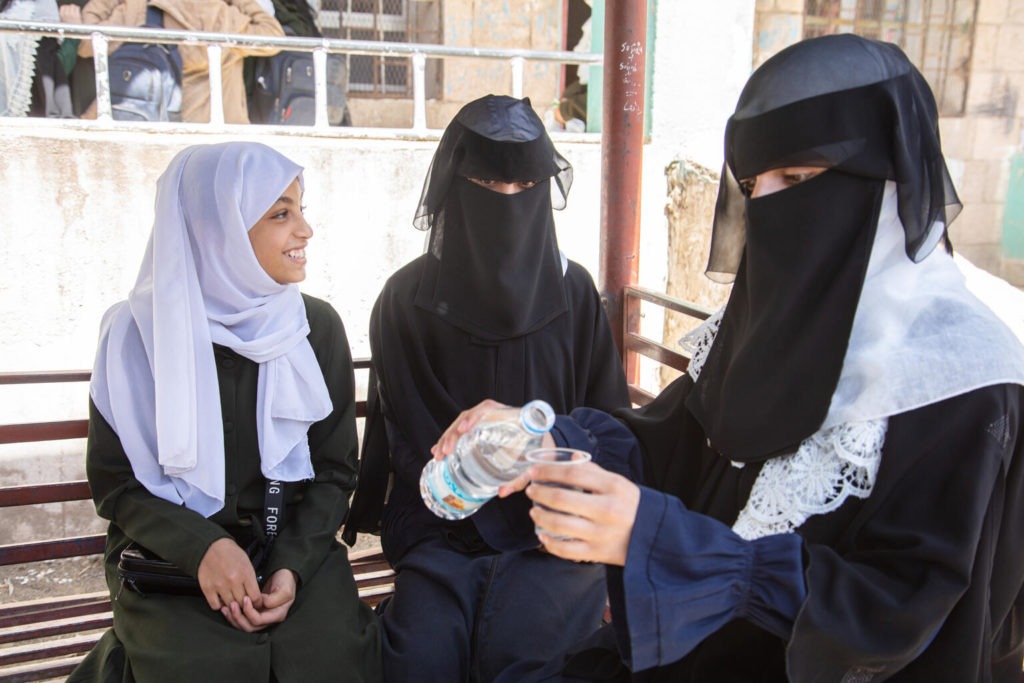
Safe water not only saves the lives of children like Mohammed, but helps keep them in education.
With a regular supply of safe water, children no longer have to drop out of school to queue for hours at water tankers.
Children like Jamila Qayed now represent a hopeful future for Yemen.
Her experiences during conflict in the country, matched with the lessons she receives at school, have helped her develop an understanding of the complexities her country faces.
From changing weather patterns to post-conflict reconstruction, she knows heavy responsibilities will fall on the shoulders of her generation.
“The war has caused us dire health troubles. It was a challenge to supply water to homes, which affected education and forced children to drop out of school to help provide water for their families,” she reflects. “Finding a clean water source is essential for the health and well-being of children.”
A clear and sustainable solution
UNICEF is partnering with communities in over 150 solar water projects in Yemen, reaching 2.5 million people. These projects connect clean water to every aspect of community life, while at the same time reducing consumption and reliance on fossil fuels. So far across the country, fossil fuel consumption in water systems has been reduced by up to 63 per cent in urban areas and between 80 to 100 percent in rural areas.
The impact of these initiatives is clear. They generate and secure clean water sources for the future, while stabilising communities through generating sustainable employment and combatting the health and economic impacts of unclean and insecure water supplies.
A clear example of a green, hopeful future that we can all commit to.

Leave a Lasting Legacy
Gifts in Wills are vital to UNICEF for ongoing programmes like solar-powered water projects, in addition to providing life-saving funding for humanitarian emergencies, allowing UNICEF teams to respond at speed and at scale to save children’s lives.
You can learn more about how you can rewrite a child’s future through including a gift in your Will from Pauline, Legacy Gifts Manager.

Contact Pauline to learn more
You can speak in confidence with our Legacy Gifts Manager, Pauline.
I will guide you through the process of how to make a Will and where to get started. Get in touch with me and I can share information about UNICEF’s Legacy Giving programme and support you on how to make your Will and discuss the various free will-writing services available to our UNICEF supporters.
Email: [email protected]
Phone: 01 878 3000
Or fill out this form and we’ll be in touch.
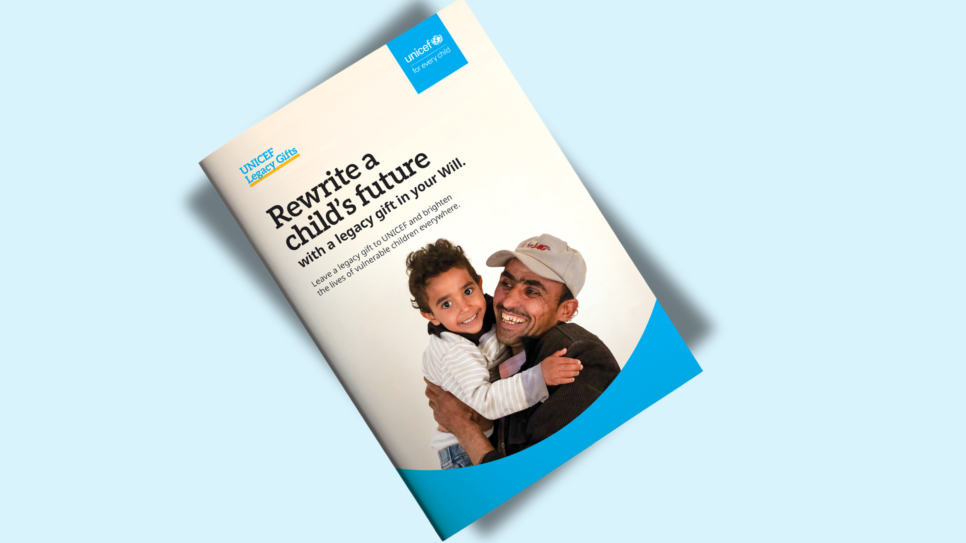
Request your legacy guide
A gift in your Will to UNICEF is a powerful way to help protect and support children for generations to come.
Request your free Legacy Guide to learn how to create or update your Will and learn how your kindness can leave a lasting impact on the lives of future generations of children.


